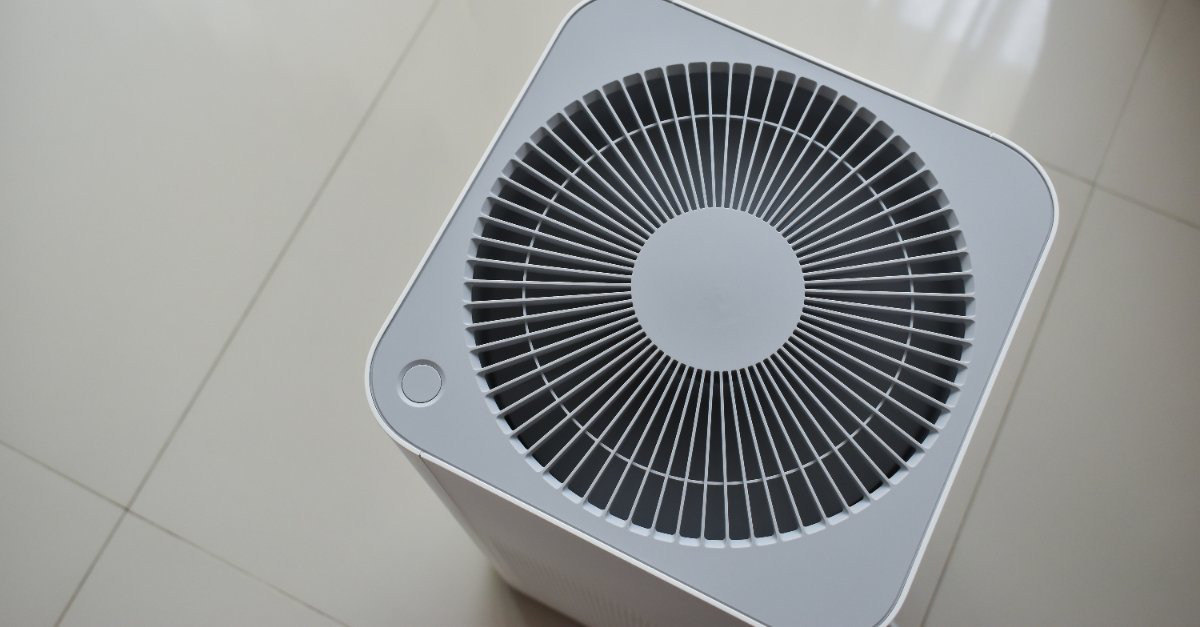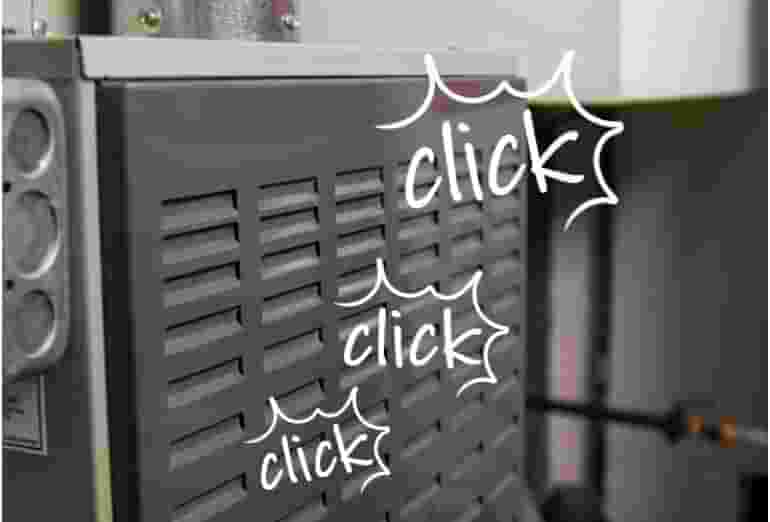You’ll often hear Pittsburgh HVAC professionals talk about good versus poor IAQ. If you’re wondering what sets one apart from the other, you’re not alone.
Poor air quality is generally that which contains particles that may adversely affect animal and human health. There are different danger levels associated with different types of contaminants, which may be organic compounds (i.e., mold spores), building materials (i.e., lead-based paint) or chemical pollutants (i.e., paint strippers). Though some of these have an indoor source, others have outdoor sources that make their way inside the building due to natural airflow and air movement.
The air within your Pittsburgh home naturally infiltrates and exfiltrates through large openings and small cracks such as doors, windows, vents, ductwork, walls and electrical infrastructure. When the temperature and humidity levels differ inside and outside of the building, outside air can flow in and inside air can flow out. Some IAQ problems are therefore not just the result of indoor pollutants, but outdoor pollution as well.
Different periods of exposure may cause varying degrees of adverse health effects. The longer your exposure to contaminants, the greater your health risks are. Some reported symptoms of poor air quality and inadequate ventilation include:
- Sick building syndrome
- Asthma symptoms
- Respiratory diseases
- Respiratory infections
- Cardiovascular disease
- Allergy symptoms
- Shortness of breath
- Cancer
Specific contaminants that may cause these symptoms include:
- Mold growth
- High carbon dioxide levels
- Pollen
- Dirt
- Dander
- Off-gassing paints, primers, furniture, electronics, treated wood, varnishes and more
- Synthetic cleaning supplies
- Candles
- Volatile organic compounds (VOCs)
- Radon gas
- Formaldehyde
- Pesticides
- And more
As you can see from the lists above, some contaminants are more severe than others. Some may also be detected through smell or sight, while others are completely invisible—such as radon gas. After tobacco smoke, radon is the next leading cause of lung cancer in North America. The only way to determine whether you’re being exposed to radon gas is with indoor air quality testing by Pittsburgh HVAC professionals.
Getting Indoor Air Quality Testing in Pittsburgh
At Aire Serv Heating and Air Conditioning, we’re a leading provider of indoor air quality testing in Pittsburgh. If you have concerns about mold or asbestos-containing materials, it’s best to contact a mold remediation company right off the bat for professional mold testing and eradication. In all other cases, we can help you to not only test the quality of your indoor air but also provide you with indoor air quality solutions as well.
Indoor air quality testing in Pittsburgh isn’t as simple as it may seem. Unfortunately, there is no single machine that can test levels of all different types of contaminants. Instead, testing tools and equipment will be selected based on suspected contaminants. For example, if carbon monoxide and radon are concerns, we’ll use special detectors designed to measure levels of these specific gasses.
There are a whole host of different detector options available that your Pittsburgh HVAC technician may use for IAQ testing. At the beginning of your appointment, we’ll discuss your main concerns with you so we know what to focus on. Some of the specialized tools and equipment we may use, depending on your goals and needs, include:
- Particle counters. Though these do not provide information on the type of pollutants in your Pittsburgh home, they can provide information about the number of small and large particles present at any given time.
- Air quality monitors. Slightly more sophisticated than particle counters, these devices provide more information on levels of broad categories of pollutants and contaminants, such as chemicals, radon levels and humidity levels, the latter of which may encourage mold growth.
- Allergy test kits. A wide variety of kits are available for different allergens and contaminants, such as VOCs, mold, dust mites, lead, pollen and dander. After taking a sample, these kits are sent to a laboratory to be analyzed.
Depending on the type of contaminant being looked for, testing may be done at a single point in time or across several weeks or months. It’s a good idea to test air quality before, during and after Pittsburgh IAQ improvement services have been used to determine the effectiveness of these solutions.
Air Cleaning and Proper Ventilation Services
Once we’ve tested your IAQ and have discovered indoor air contaminants that should be eliminated, we’ll recommend one or more of our Pittsburgh IAQ improvement services to you. The goal of these services is always to lower indoor concentrations of pollutants. Through the use of various air quality improvement technology solutions, we will significantly reduce or even eliminate most of your indoor air pollution. Total eradication is often not the goal or even possible, as low levels of some of these contaminants are not harmful to human health.
In most cases, you can expect your HVAC technician to suggest one or more of the following services to improve your IAQ:
- Air filter replacement. Cleaning, replacing and installing air filters not only keeps your Pittsburgh HVAC system in great condition but also helps remove pollutants from your air. Regular maintenance every few months is required to ensure your filters are as effective as possible.
- Media filter installation. These filters are very dense, making them more effective than your standard HVAC air filter.
- Installation of whole-house air purifiers and electronic air cleaners. These devices often use HEPA (high-efficiency particulate air) filters, which do a better job of filtering out pollutants than standard air filters.
- Air duct cleaning. Ducts are like roadways for your indoor airflow. If your ducts are full of pollutants, fresh air will pick up these pollutants and spread them throughout your home. Regular duct cleaning can prevent this from occurring.
- Ultraviolet lights. UVC and UVV lights may be installed in your Pittsburgh HVAC system to kill pollutants of concern.
- Humidifiers and dehumidifiers. Both excess and an absence of humidity can be harmful to your health. If your home is much more humid or dry than it should be, installing one of these devices can significantly improve your IAQ.
- Mechanical ventilation solutions. Unlike natural ventilation, which describes the exchange of interior and exterior air through cracks and gaps in your home known as ‘air leaks,’ mechanical ventilation promotes air exchange in a more energy-efficient way.
Maintaining High Interior Air Quality After Your Testing and Cleaning Service
Investing in indoor air quality testing in Pittsburgh is an investment in the health of your whole household. Getting regular IAQ cleaning services and testing doesn’t hurt, but if you want to limit how often you use these services, there are a few strategies you can take to try to keep your IAQ as high as possible. These include:
- Regularly vacuuming. Whether you have hardwood floors or carpets, you’d be surprised just how many pollutants find their way onto surfaces within your Pittsburgh home. Ensure that you vacuum your place at least once per week to reduce the number of particles floating around your home.
- Using low-VOC paints. Doing some home improvement projects? Pick products that aren’t high in VOCs to prevent breathing in any of these harmful particles.
- Choosing natural cleaning products. Though the smell of a strong cleaner may make you feel like your home is truly clean, many of these cleaners may be very harmful to your health when breathed in. Swap these out for more natural cleaning product alternatives.
- Purchasing portable HEPA filters. A portable air purifier may not remove all pollutants, but it can certainly remove plenty. Healthy buildings can be monitored with a particle counter. If you see the number drop after running your portable purifier, you’ll know it’s working.
Aire Serv Heating and Air Conditioning Is Committed To Bettering The Health of Residents in Pittsburgh and Beyond
When you choose our IAQ testing service, you won’t just get peace of mind in knowing that your IAQ will be improved, but also in knowing that you’re investing in a company that you can rely on and trust. As a locally owned and operated business, we’re passionate about giving back to the community. The health of you and your family is just as important to us as that of our family.
Worrying about health effects caused by pollutants is stressful enough without also having to worry about the number on your final invoice at the end of your service. In the spirit of full transparency, we provide all of our customers with upfront pricing and no overtime charge. The quote you receive at the beginning of your service is exactly what you’ll pay at the end. This is also backed by our workmanship warranty. If you’re not fully satisfied with the quality of workmanship you received, simply let us know within 60 days of your service appointment and we’ll gladly come back and make it right. Your satisfaction is our number one priority!
FAQs For Indoor Air Quality Testing in Pittsburgh
Can I Test My IAQ On My Own?
You can purchase an indoor air quality monitor for your home, but not all devices are created alike. Ensure that you do extensive research before purchasing a monitor. We generally recommend investing in our IAQ testing service first, as we have the experience and expertise to test for specific pollutants. To keep an eye on your air quality post-service, an IAQ monitor is a great option.
What Is The Ideal Benchmark For IAQ?
The answer to this question depends on the contaminant of concern. For carbon dioxide, you’ll generally want levels under 1,000 ppm (parts per million). For radon, you generally want around 100 Bq/m3 (Becquerel per cubic meter), but absolutely no more than 300 Bq/m3.
How Much Does Indoor Air Quality Testing in Pittsburgh Cost?
The cost of indoor air quality testing in Pittsburgh largely depends on what types of pollutants you want to test for. The more pollutants you require tests for, the more the service will cost.
To get an idea about pricing, we encourage you to contact us to discuss your unique IAQ testing needs.
Contact Aire Serv Heating and Air Conditioning for Indoor Air Quality Testing in Pittsburgh Today!
If you’re ready to test your indoor air quality and take advantage of our IAQ improvement services, get in touch with our professional and highly experienced team at Aire Serv Heating and Air Conditioning.
To book your service appointment, give us a call or request an appointment online using our online appointment request form. We look forward to helping you get your indoor air quality back on track so that you and your family can enjoy a healthy home for years to come!
 Click to call
Click to call



